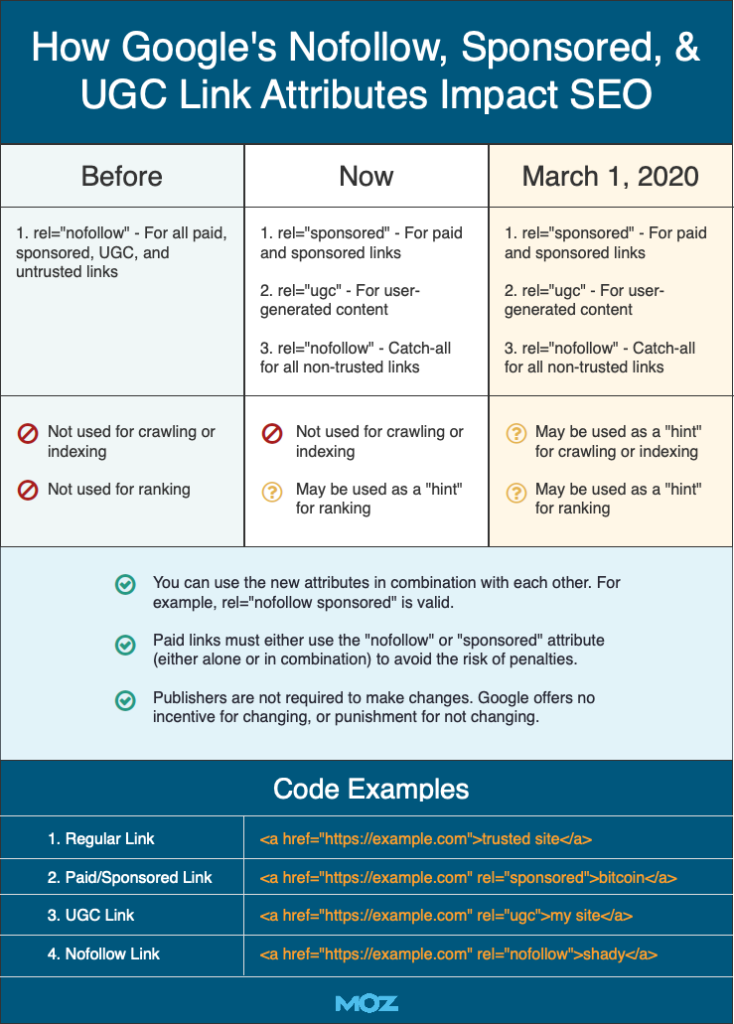It will come as no surprise that when Google updated its 14 year nofollow link attribute value on 10th September it caused quite the stir in the world of SEO.
This update sees an extension to the well-recognised nofollow tag, broken down by Google as follows:
rel=”sponsored”: Use the sponsored attribute to identify links on your site that were created as part of advertisements, sponsorships or other compensation agreements.
rel=”ugc”: UGC stands for User Generated Content, and the ugc attribute value is recommended for links within user generated content, such as comments and forum posts.
rel=”nofollow”: Use this attribute for cases where you want to link to a page but don’t want to imply any type of endorsement, including passing along ranking credit to another page.
Historically, the nofollow tag was initially introduced by Google to help prevent comment spam, latterly this update is regarded as a way for website owners to tell Google to ignore the link. In other words, the link wouldn’t be crawled and it wouldn’t be used as an indication to help improve rankings. It therefore became a common way for websites to still acknowledge guest blog posts, partnered or sponsored content without losing any of their site equity.
What’s changed and why does this matter?
However in the new update this view of ‘nofollow’ tags and the introduction of two new tags ‘sponsored’ and ‘ugc’ Google seems to have changed its mind stating:
“All the link attributes — sponsored, UGC and nofollow — are treated as hints about which links to consider or exclude within Search. We’ll use these hints — along with other signals — as a way to better understand how to appropriately analyze and use links within our systems.”
The idea that it could be a ‘hint’ is great news for websites looking to earn links and increase their backlink portfolio, what was once a redundant link is now being used as a ‘hint’ for ranking.
Google has made it clear that websites don’t need to update old nofollow tags to follow the new structure but instead this can be introduced by websites who want to be more granular in their link tags.
You took time to ask a client if they would adopt something no one said you needed to do? Again, this is a voluntary outside of sponsored links. If people *want* to use more granular identification, those who *do want* can do so. If you don’t, don’t. https://t.co/rMmSrUHaSQ pic.twitter.com/hbNMgPaxtd
— Danny Sullivan (@dannysullivan) 10 September 2019
Furthermore, as of March 2020 Google has also suggested they may begin using this collection of nofollow, sponsored and ugc link attributes for crawling and indexing.
Moz have produced a simple analysis of this change which helps demonstrate before, now and how this will change again from March 2020.

If you have any questions about the impact of linkbuilding our door is always open…





